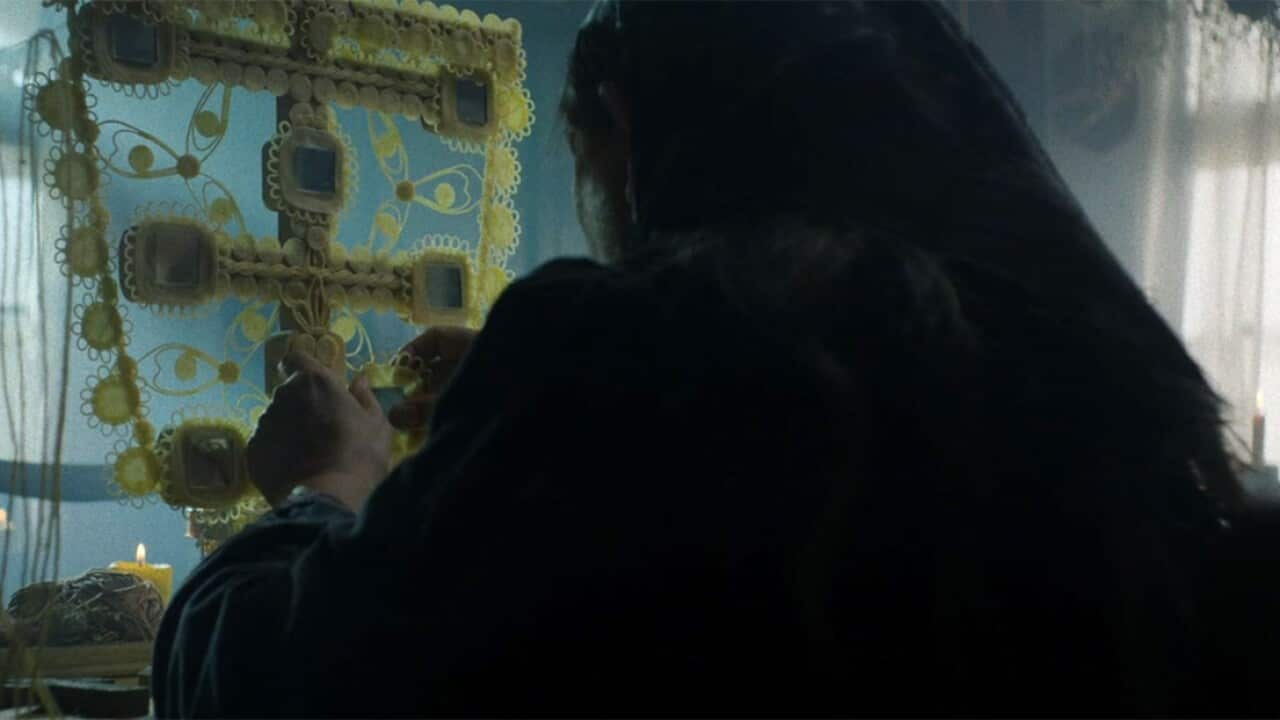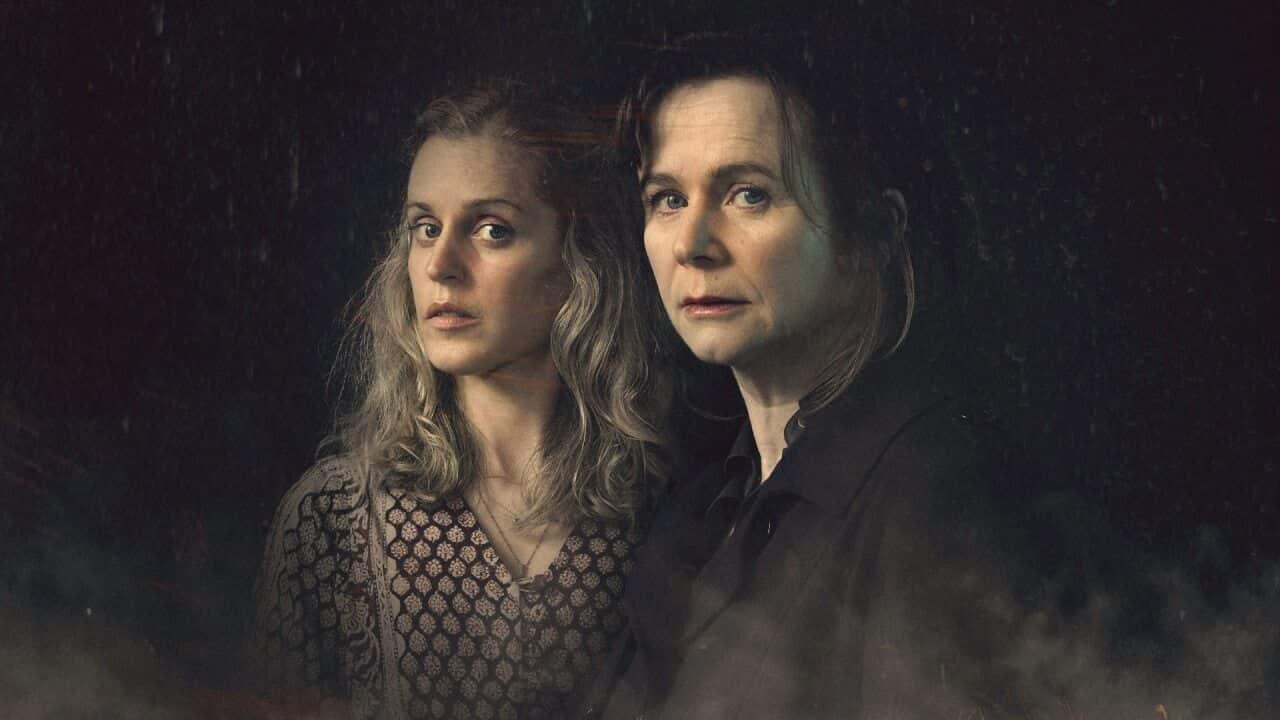“No one cares about our little Black kids.” This anguished and angry sentiment, spoken by the nephew of murdered teenager Clinton Speedy-Deroux, captures the heart of the new feature-length documentary The Bowraville Murders.
Directed by Allan Clarke, The Bowraville Murders is a wrenching story about crime, legal drama, racial injustice and heartbreak, but it’s also a story about decades of resistance and perseverance.
The film covers the 30-year case of three missing or murdered Aboriginal children in the small northern New South Wales community of Bowraville Mission. Between September of 1990 and January of 1991, Colleen Walker-Craig (age 16), Evelyn Greenup (age 4) and Clinton Speedy-Deroux (age 16) all disappeared from the Mission. Chillingly, the children were all last seen within a short distance of each other. In 1991 the remains of Evelyn and Clinton, as well as clothing belonging to Colleen (whose body has never been found), were all discovered along the same stretch of road outside of Bowraville. From the beginning, the investigation of the case by local authorities was considered careless or outright neglectful by the families, and pursued “with no great urgency”, they say. In their view, undue attention was focused by the police on the behaviour of the families, as if their drinking or living arrangements were to blame for their own kids’ murders. “That’s racism at its finest,” Paula Craig, Colleen’s sister, says.
From the beginning, the investigation of the case by local authorities was considered careless or outright neglectful by the families, and pursued “with no great urgency”, they say. In their view, undue attention was focused by the police on the behaviour of the families, as if their drinking or living arrangements were to blame for their own kids’ murders. “That’s racism at its finest,” Paula Craig, Colleen’s sister, says.

Looking for justice: Elijah Duroux, Leonie Duroux and Marbuck Duroux Source: SBS
So they took matters into their own hands, conducting searches (“We were doing the job that the police should have been doing,” says Muriel Craig, Colleen's mother) and then spearheading years of protests and campaigns to force higher authorities to pursue the case properly.
The families, as well as the legal experts who have assisted them, have long been convinced that the prime suspect is Jay Hart, a white man who had previously been accepted in the Mission community. The film details the investigation into the murders, the cases that were brought against Hart and the families' fight for justice.
Hart was acquitted of in two separate trials of the murder of Clinton Speedy-Deroux and Evelyn Greenup. No charges were ever brought in relation to the death of Colleen Walker.
Since that time, a long series of reinvestigations, inquests, parliamentary inquiries and appeals has been mounted by the families in pursuit of justice. Their relentless pressure, and advocacy from a few sympathetic politicians including the Greens’ David Shoebridge, has produced some remarkable results — especially the 2006 amendment to NSW’s double jeopardy laws. That overturned 800 years of legal precedent and finally allowed for review of the case by the courts. In 2019, the NSW attorney general made an unprecedented application to the High Court of Australia for appeal in the case — but like all the other appeals it was rejected. There is a great deal of suspense and drama in all of these years of proceedings, and the film is very effective in bringing it out, mixing archive footage of the case with more contemporary observational scenes of the struggle in the courts and on the streets.
There is a great deal of suspense and drama in all of these years of proceedings, and the film is very effective in bringing it out, mixing archive footage of the case with more contemporary observational scenes of the struggle in the courts and on the streets.

The grave of 4-year-old Evelyn Greenup. Source: SBS
Director Clarke is a Muruwari and Gomeroi man who spent time with family in the Bowraville Mission as a child. This personal connection is apparent onscreen in the intimate interviews with the family members of the victims, and in the sense of immediacy the film brings to their long battle for justice.
With its detailed investigation of murders that are officially unsolved, The Bowraville Murders contains elements of the true crime genre. With sharp editing and impressive graphics, Clarke and his team lay out 30 years of intersecting timelines involving many crime scenes, eyewitness accounts and legal wranglings. It’s all made clear and compelling to viewers who may be new to the story. But there is a larger point transcending crime and mystery. The Bowraville Murders explicitly connects the fates of these three children to the racism inherent in Australian history and society. Archive footage of the 1965 Freedom Ride, which stopped in Bowraville, shows the brutal segregation that was enforced there. More recent clips remind us of the Indigenous deaths in custody that are still rampant in the justice system. Among the interview subjects is journalist and broadcaster Stan Grant, who says, “It’s a killing that never stops.”
But there is a larger point transcending crime and mystery. The Bowraville Murders explicitly connects the fates of these three children to the racism inherent in Australian history and society. Archive footage of the 1965 Freedom Ride, which stopped in Bowraville, shows the brutal segregation that was enforced there. More recent clips remind us of the Indigenous deaths in custody that are still rampant in the justice system. Among the interview subjects is journalist and broadcaster Stan Grant, who says, “It’s a killing that never stops.”

Rebecca Stadhams, mother of Evelyn Greenup. Source: SBS / Kate Holmes
In the words of Gavin Walker, Colleen’s nephew and Black Lives Matter activist, “People see it differently because our kids were Black… it’s under the rug now.”
The Bowraville Murders doesn’t have a happy ending: the case is still unresolved, and the fatigue and despair of the families after their latest appeal is rejected is palpable onscreen. But this documentary stands as a testament to a momentous struggle that started in a small town, shook the foundations of Australian society, and still continues. The families of these children are determined that they will not be forgotten, and this powerful film will surely aid their cause.
The Bowraville Murders premiered as part of the series of documentaries. The Bowraville Murders will screen 8.30pm Monday 29 August on NITV as part of the Karla Grant Presents series, where journalist Karla Grant introduces films and documentaries, offering insights and contextualising each story for the audience. The documentary is also streaming at SBS On Demand.






